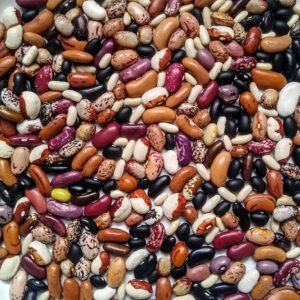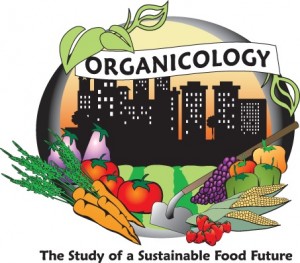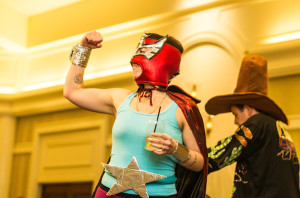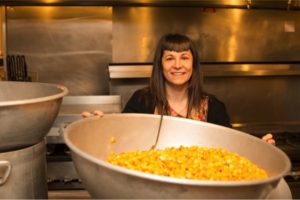
 OSA staff recently returned from the Organicology conference in Portland, Oregon, where more than 1,000 people representing all sectors of the organic food chain gathered to discuss – and further create together – a vision for growing the organic sector from the seed up.
OSA staff recently returned from the Organicology conference in Portland, Oregon, where more than 1,000 people representing all sectors of the organic food chain gathered to discuss – and further create together – a vision for growing the organic sector from the seed up.
Few food and farming conferences aim to inspire interaction between diverse players, where farmers get to know CEOs, organic certifiers visit with food retailers, and policy wonks meet public plant breeders. The event is deliberate cross-pollination at its finest.
OSA helped launch this biennial event in 2009 with our partners – Organically Grown Company, Oregon Tilth, and Sustainable Food Trade Association – because it seemed that few people in the organic food trade were considering the risks involved in expanding the organic sector on a foundation of seed developed for chemical agriculture. Organic farmers need the best seed possible, and that means seed developed for organic agriculture. We need to work collaboratively as a community to ensure organic seed is available and protected.
That’s why our role in the conference is to develop trainings and lectures focused on seed for those in the organic community who aren’t, well, “seed heads” like us. We led a workshop on the important role public plant breeding plays in supporting organic food systems, and helped convene a separate discussion about how stakeholders along the organic food production chain can influence and participate in plant breeding decisions. We sat on a panel about GMOs and the elusive concept of “coexistence” and another on the opportunities in organic research. To kick off the conference we delivered an all-day seed intensive for organic growers. Our seed swap was a hit, with dozens of people sharing collections of seed representing hundreds of varieties.

Following three days of intensives, workshops, networking events – and, wow, the entertainment! (see right) – OSA enjoyed showcasing a number of our organic plant breeding projects for all in attendance. It was an intimate (and delicious) introduction to our work, where our executive director, Micaela Colley, joined Lane Selman, Oregon State University researcher and director of the Culinary Breeding Network, in hosting an Ark of Taste and Heirlooms of Tomorrow dinner.
The Ark of Taste, a project of Slow Food, is a living catalog of delicious and distinctive foods facing extinction. This project aims to identify and champion these foods by keeping them in production and on our plates. By keeping the crops on this list in production, and by extension their seed, we are conserving and improving our plant genetic heritage. These varieties, handed down generation-to-generation, become our “heirlooms of tomorrow,” a concept that emphasizes the development and protection of resilient and diverse plant varieties that are made available for future generations to use and adapt to their own needs just as our ancestors did for us.
OSA’s Heirlooms of Tomorrow program recognizes that our ancestors never stopped breeding. All of our food crops have their roots in an agricultural history where farmers used observational skills to identify and select from plants that were the tastiest and most high-yielding and disease-resistant. Farmers today who continue the important work of selecting and producing seed from crops that flourish in their regional climates and production systems are carrying on the work of the best farmer-breeders.

Some of these farmer-breeders were featured as part of this special Organicology dinner, including Frank Morton of Wild Garden Seed and his ‘Cherry Vanilla’ quinoa, ‘Delicata Zeppelin’ squash, and ‘Lacinato Rainbow’ kale. Also featured were Oregon State University plant breeders Jim Myers and Pat Hayes, and their mild habanero peppers and ‘Purple Karma’ barley, respectively. Carol Deppe’s ‘Oregon Homestead Sweet Meat’ squash, available through her business, Fertile Valley Seeds, was also featured. And OSA’s participatory plant breeding work made it to everyone’s table in the form of Nash’s green kale and green cabbage (bred in partnership with Nash Huber of Nash’s Organic Produce), and ‘Abundant Bloomsdale’ spinach, bred in partnership with eight organic farms in the Pacific Northwest. Beautiful packets of ‘Abundant Bloomsdale’ were shared with guests as a party favor thanks to support from Hudson Valley Seed Library and the Port Townsend Food Co-op. (Don’t miss the slideshow of this meal below.)
And for dessert? Well, that ‘Who Gets Kissed?’ sweet corn you’ve been hearing so much about was served extra sweet that night in the form of ice cream. We served an early maturing version of this variety grown at Nash’s Organic Produce in the cool maritime climate of Sequim, Washington. ‘Who Gets Kissed?’ was made possible thanks to our partnership with the University of Wisconsin-Madison and farmer-breeder Martin Diffley. The work in Washington is supported by the Port Townsend Food Co-op.
The evening was a celebration of our food heritage, but even more, it felt like a celebration of what’s to come, a new heritage in the making led by some powerful yet quiet heroes in our public plant breeding and farming community. The meal was the perfect end to a conference focused on sowing new knowledge, spurring a groundswell of interest in seed that spilled over arbitrary boundaries and labels and job titles, and fed a broader base of advocates who will help us attend to the urgent matter of sustaining the seed that feeds us.
